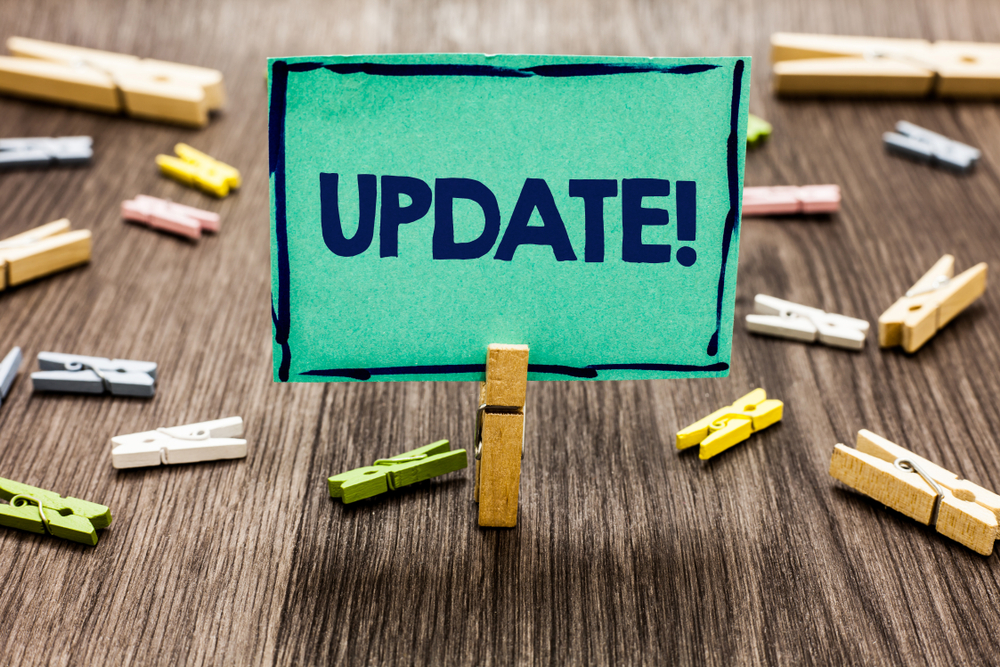Please Note: This blog is designed for general information only. The information presented at this site is not intended to provide legal advice or a legal opinion and should not be construed as the formation of an attorney-client relationship. Specific questions should be directed to an attorney at NowackHoward, LLC or to another lawyer.
Gov Kemp Executive Order
Governor Kemp issued a new Executive Order on June 11, 2020 that will modify the requirements for the operation of
swimming pools, tennis courts and other amenities in community associations when it goes into effect on June 16, 2020. While this Order appears to offer some relief for community associations, homeowners association attorneys caution that potential for HOA COVID-19 liability in Georgia remains.
Aptly labeled “Empowering A Healthy Georgia,” the new Order removes the requirement that the owner/operator of an in-person facility (except gyms and fitness centers) must enforce Social Distancing of non-cohabitating persons while they are present on the property. Although rescinded for some amenities, the enforcement requirement remains for gyms and fitness centers.
While there were notable changes from the previous Gov Kemp Executive Order, significant obligations for associations under the Order remain in place to slow the spread and mitigate HOA COVID-19 liability. We analyzed if the new Order eased associations’ obligation to carry out the other operational requirements including COVID and swimming pools, but our homeowners association attorneys do not believe the terms of the new Order relieve Georgia associations of the obligation to comply nor provide relief from HOA COVID-19 liability if the association fails to comply with the mandates in place. Use of pool attendants is an appropriate way to assure compliance.
COVID and Swimming Pools
As always, this new article is to provide our HOA attorneys’ general guidance based on the current information we have available to help community associations determine whether and how to open their community amenities considering the COVID-19 crisis. Please contact us to address your community’s specific issues and provide legal advice for your association.
HOA NOT RESPONSIBLE FOR ENFORCING SOCIAL DISTANCING AT POOLS, TENNIS COURTS, AND OTHER COMMON AREA AMENITIES, BUT STILL RESPONSIBLE FOR PROHIBITING GATHERINGS
While the new Gov Kemp Executive Order carries forward the requirement in previous Executive Orders that all residents and visitors of the State of Georgia shall practice Social Distancing, enforcement of Social Distancing is no longer the responsibility of the community association, except in gyms and fitness centers. Social Distancing is now self-enforced by each user at association swimming pools, tennis courts, and other common area amenities. However, homeowners association attorneys stress that the community association remains obligated to prohibit Gatherings on the common areas and should enforce these guidelines to limit the association’s potential for HOA COVID-19 liability.
DEFINITION OF GATHERING EXPANDED TO MORE THAN 50 PERSONS
The definition of “Gathering” has been doubled to mean 50 persons physically present at a Single Location if, to be present, persons are required to stand or be seated within six feet of any other person. In addition, groups of more than 50 people are now permitted if their grouping is transitory or incidental, or if their grouping is the result of being spread across more than a Single Location.
ASSOCIATIONS OBLIGATED TO IMPLEMENT 20 MANDATORY MEASURES AT POOLS, TENNIS COURTS, AND OTHER COMMON AREA AMENITIES TO LIMIT SPREAD AND HOA COVID-19 LIABILITY IN GEORGIA
Importantly, nonprofit corporations, including community associations, must still implement the mandatory measures listed on pages 12-13 of the new Order that are applicable to the association’s pools, tennis courts and other common area facilities to help mitigate the exposure and spread of COVID-19.
The applicable requirements for most associations will be the obligation to implement the following measures, as enumerated on pages 12 and 13 of the new Order:
- Screening and evaluating Workers* who exhibit Symptoms of COVID-19;
- Posting a sign on the front of the facility stating that individuals who have Symptoms of COVID-19 shall not enter;
- Requiring Workers who exhibit Symptoms of COVID-19 to not report to work or to seek medical attention;
- Enhancing sanitation as appropriate**;
- Disinfecting common surfaces regularly**;
- Requiring handwashing or sanitation at appropriate places within the location;
- Prohibiting Gatherings during hours of operation;
- Prohibiting handshaking and unnecessary person-to-person contact;
- Placing notices that encourage hand hygiene at the entrance to the facility and in other areas where they are likely to be seen; and
- Prohibiting volunteering or participation in activities for persons diagnosed with COVID-19, having exhibited Symptoms of COVID-19, or having had contact with a person that has or is suspected to have COVID-19 within the past 14 days.
*The Order defines Workers as employees, independent contractors, agents, volunteers, or other representatives of a nonprofit corporation.
**In its most recent guidance on the issue, the Georgia Department of Public Health provided the following details on requirements for enhanced sanitation and disinfecting common surfaces regularly. Be sure to follow each of these closely for the best chance of reducing the spread and mitigating HOA COVID-19 liability in Georgia:
Enhance sanitation as appropriate. A list of approved disinfectants from the Environmental Protection Agency that are shown to be effective against SARS-CoV-2, the virus that causes COVID-19, can be found here: https://www.epa.gov/pesticide-registration/list-n-disinfectants-use-against-sars-cov-2-covid-19. An alternative disinfectant can be used: 1/3 cup of unscented bleach added to 1 gallon of water. Do not mix bleach with other cleaning and disinfection products together because this can cause fumes that are very dangerous to breathe in. Schedule time for disinfection.
Disinfect common surfaces regularly. Clean and disinfect restrooms regularly, check restrooms based on the frequency of use, and ensure adequate supply of soap and paper towels is available. Clean and disinfect frequently touched surfaces based on daily usage but at least once during hours of operation and before opening. General CDC guidance on cleaning and disinfecting can be found here: https://www.cdc.gov/coronavirus/2019-ncov/community/reopen-guidance.html.
ASSOCIATIONS OBLIGATED TO IMPLEMENT 17 ADDITIONAL MANDATORY MEASURES IN GYMS AND FITNESS CENTERS
In addition to the requirements for nonprofit corporations on pages 12-13 of the June 11 Order, there are 17 mandatory measures for gyms and fitness centers on pages 14-15 of the Order. Some of the measures duplicate the requirements for nonprofit corporations generally on pages 12-13 of the Order. However, there are additional requirements as well, including, but not limited to, the following that will most commonly apply to community association gyms and fitness centers (as enumerated in the Order):
- Limiting occupancy to enforce Social Distancing requirements and to prohibit Gatherings;
- Providing Hand Sanitizer stations as available for patrons;
- Providing antibacterial sanitation wipes as available at or near equipment and requiring users to wipe down the equipment before and after each use;
- Requiring Workers, if any, to patrol patron areas to enforce the equipment wipe-down policy and conduct additional cleanings during times when equipment is not being used;
- Limiting use of cardio machines to every other machine or distancing machines to maintain acceptable Social Distancing between users;
- Enforcing Social Distancing and prohibiting congregating between non-cohabitation patrons;
- Encouraging patrons to conduct their workout and exit the facility without unnecessary delay;
- In addition to the regular cleaning schedule, cleaning and sanitizing high touch surfaces, bathrooms, and locker rooms regularly through hours of operation;
- Prohibiting patrons from sharing equipment without cleaning and sanitizing between uses.
GEORGIA HOMEOWNERS ASSOCIATION ATTORNEYS EMPHASIZE: SIGNAGE AT THE AMENITIES REMAINS ESSENTIAL
Based on the new Executive Order and the CDC guidelines, we recommend ensuring the signage at your amenities complies with the Executive Order. In addition to your usual signage, each amenity area should likely include the following additional signage that should be tailored to your specific amenities and comply with any design and placement requirements in your jurisdiction:
USE AT YOUR OWN RISK. COVID-19 MAY BE PRESENT.
Individuals who have a fever or other symptoms of COVID-19, have been diagnosed with COVID-19, or who have had contact with a person that has or is suspected of having COVID-19 within the past 14 days shall not enter.
According to current CDC guidance, symptoms of COVID-19 may include fever or chills; cough; shortness of breath or difficulty breathing; muscle or body aches; headache; new loss of taste or smell; sore throat; congestion or runny nose; nausea or vomiting; and diarrhea.
Social distancing required in amenities area: non-cohabitating persons must maintain 6 feet of separation.
Good hand hygiene required while using this facility.
Handshaking and unnecessary person-to-person contact is prohibited.
No more than ___ persons in the amenity area at one time. (Based on your association’s amenities.)
Specify instructions on user requirements for enhanced sanitation procedures, (as necessary for your association’s amenities).
We also recommend posting the CDC’s flyers about handwashing and the CDC COVID-19 Fact Sheet and/or CDC Stop the Spread of Germs:
https://www.cdc.gov/handwashing/posters.html
https://www.cdc.gov/coronavirus/2019-ncov/downloads/2019-ncov-factsheet.pdf
https://www.cdc.gov/coronavirus/2019-ncov/downloads/stop-the-spread-of-germs.pdf
INSURANCE COVERAGE REMAINS A CONCERN FOR ASSOCIATIONS AND HOA COVID-19 LIABILITY IN GEORGIA
Even with the less burdensome requirements of the new Executive Order, there remains potential liability for associations, should someone sue the association claiming to have contracted COVID-19 at any of the association’s amenities. As our homeowners association attorneys have discussed in previous articles on our blog, such claims are not likely to be covered by general liability or directors’ and officers’ liability insurance policies, including the community’s costs to defend a case. Without insurance coverage, if your association is sued by someone claiming to have contracted COVID-19 at an amenity area, the association must pay out of its own funds all attorney’s fees and other legal expenses to defend the case and any judgment entered against the association.
We continue to recommend that you confirm your association’s insurance coverage directly with your carrier in writing.
If you have questions on Governor Kemp’s most recent Order, or other questions related to HOA COVID-19 liability, our homeowners association attorneys are available to help. Give us a call at (770) 863-8900, or fill out our online contact form, and one of our lawyers will connect with you to see how we may be able to help your community.
As previously stated, this blog is designed for general information only. The information presented at this site is not intended to provide legal advice or a legal opinion and should not be construed as the formation of an attorney-client relationship. Specific questions should be directed to an attorney at NowackHoward, LLC or to another lawyer.


